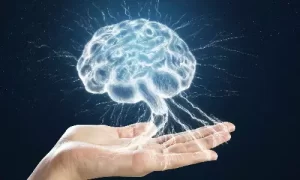
Dr. Pavan Asalapuram, Co-Founder, Empe Diagnostics
Diagnostics are an indispensable aspect of modern healthcare systems. If there is a way to win existing and new war chests against diseases and emerge strong from the development drought of the Indian healthcare sector, it is diagnostics indeed. Diagnostic services can translate into efficient and precise treatment for patients as it plays a pivotal role in identifying and treating diseases at their earliest stages, which can ultimately improve patient outcomes and the healthcare sector as a whole. And, we did witness it at large when Covid19 hit the country hard. Having RT-PCR tests and kits within the reach of India’s vast population was another cornerstone that highlighted the role and importance of diagnostics in managing a health crisis.
Diagnostic services encompass a wide range of medical tests and procedures, such as lab tests, TB diagnostic kits, drug resistance diagnostic kits, imaging studies (CT Scan, MRI etc.) and biopsies that help healthcare providers make accurate diagnoses and develop effective treatment plans. Without a doubt, timely intervention through accurate diagnostic services can multiply the effectiveness of the treatment to 100x and foster greater outcomes. For instance, a patient suffering from tuberculosis is able to have a diagnosis using TB diagnostic kits like MDR-TB Kits and access results instantly which will enable faster and more accurate treatment.
However, the question arises are we competent in this area of healthcare? Do we have enough facilities to cater diagnostic services to even remote areas? Though the Indian healthcare sector has undergone significant transformation in recent years and has made remarkable progress in terms of healthcare infrastructure and access to medical care, there is still a lot of ground to cover, particularly in the field of diagnostic services. To develop a robust health system, the diagnostic sector deserves more recognition and investment attention.
How diagnostics are crusading healthcare needs
1. Effective disease management: The development of the Indian healthcare sector is closely linked to the availability and accessibility of diagnostic services. Accurate and timely diagnosis is critical for the effective management and treatment of diseases. Without access to quality diagnostic services, healthcare providers may miss crucial diagnostic clues, leading to delayed or incorrect diagnoses. This, in turn, can result in ineffective treatment, disease progression, and increased healthcare costs.
2. Availability of diagnostics for early detection and prevention of diseases: Diagnostics are key to preventive healthcare which is a dire need in today’s world, inundated by severe health problems like tuberculosis, cancer and heart diseases among the long list of life-halting diseases. Although if managed well and treated if detected early, they stand a high chance of causing the least damage to the patients. As these diseases are time-vulnerable, therefore, diagnostic services, such as cancer screenings and cardiac tests, can help detect these diseases in their early stages, allowing for timely intervention and treatment.
3. Enable disease risk factor identification: Diagnostics help identify risk factors for diseases, which enables preventive measures to be taken, thus reducing the overall burden on the healthcare system. Undoubtedly, prevention is better than cure. And adhering to this policy, the healthcare system can genuinely become patient-centric by keeping diagnostics as a priority. For example, genetic screening can help in diagnosing future risk factors for a person and timely intervention through proper diagnostics can reduce that risk to the lowest.
4. Outbreak and public health concerns management: In order to manage public health concerns in an effective manner, having diagnostics in the mainline is a must. This is because the accurate and rapid diagnosis of infectious diseases like tuberculosis, and the Covid19 pandemic among others can help manage the outbreak and the prevention of the spread of diseases. It can save countless lives and even prevent epidemics. Additionally, diagnostics is critical in detecting non-communicable diseases (NCDs), such as cardiovascular diseases and cancer early. Early detection can lead to better outbreak management in times of crisis and hence results in better outcomes.
5. Drive innovation and job creation: If anything in the healthcare industry has the best potential to drive innovation, push job creation and promote economic growth, then it is definitely the diagnostic sector which is highly robust in its development. It can lead to the development of new technologies and testing services that facilitates improved diagnostic accuracy, speed and affordable access. In addition, thriving healthcare diagnostics can potentially generate better employment opportunities, especially in the research and development wing along with manufacturing and sales.
Conclusion
Diagnostics is the foundation on which the healthcare industry relies for effective treatment decisions and aggressive management of public health concerns at large. It is the first step in a patient’s journey towards recovery because it aids in adequate and timely diagnosis leading to greater treatment efficacy. Unfortunately, despite the importance of diagnostic services in healthcare, India has not invested enough in this area. In the 2023-24 budget, the government allocated a meagre 12% increase for the healthcare sector. However, the government’s inclination towards fostering research and development in the field of medicine and diagnostics has been commendable. There is a long way for the healthcare industry to go in order to cater for every patient with impactful healthcare.






